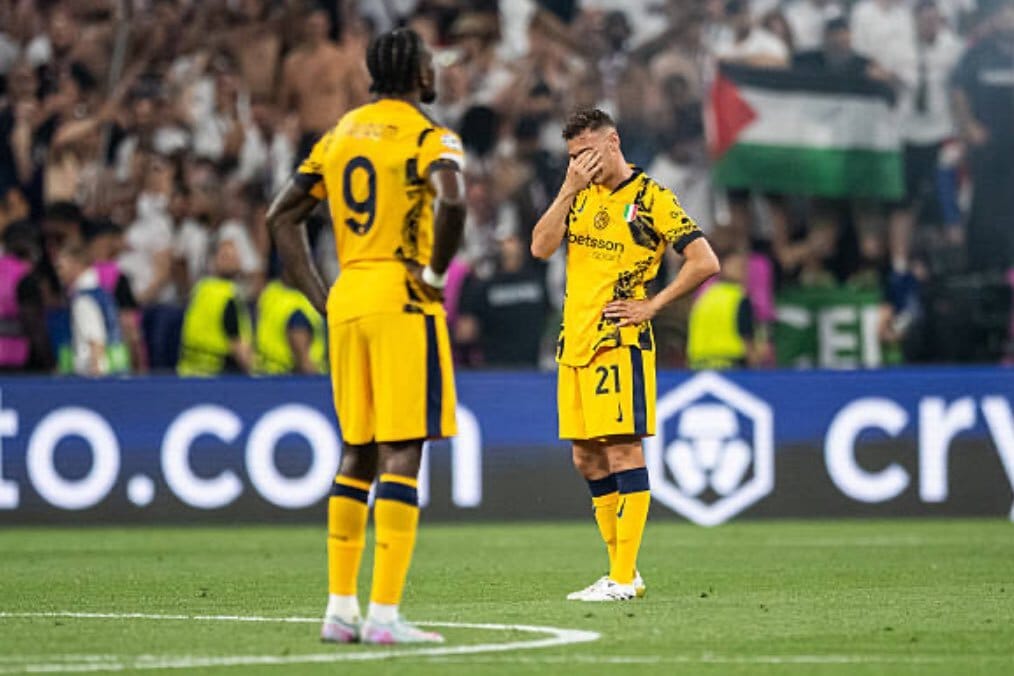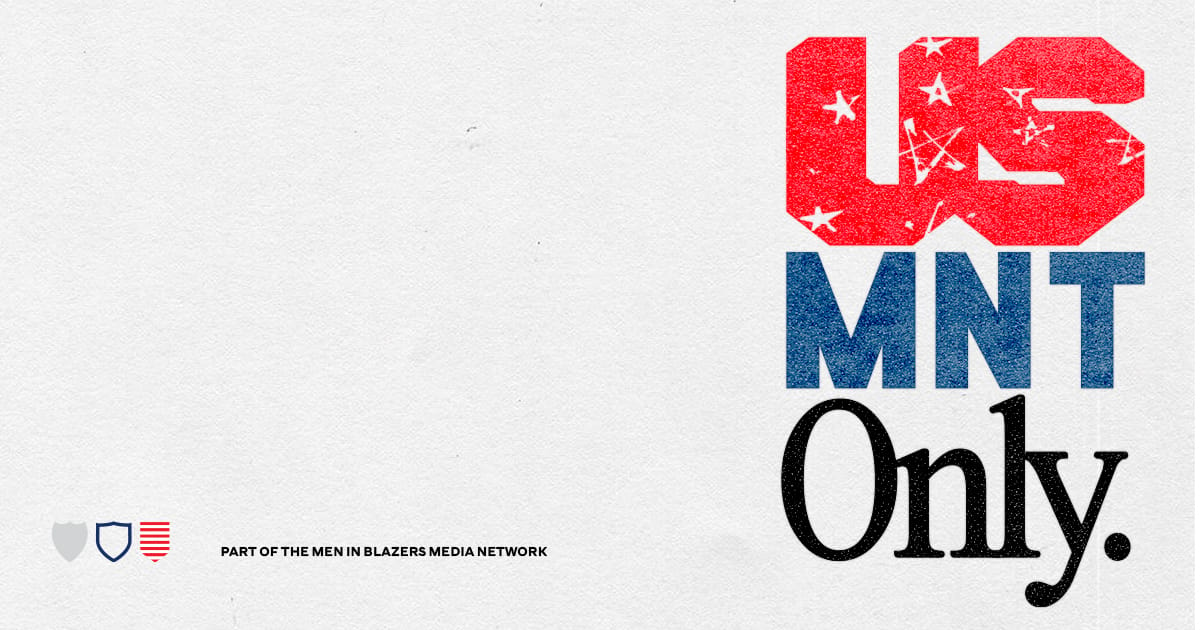Greetings from Yorkshire
Rory Smith writes: So, here we are. It’s over. How was it for you? There’s a line in “30 Rock,” delivered by Alec Baldwin’s character, Jack Donaghy, that always comes into my mind at this time of year. In the same way as the Donaghy worldview allows for three types of intelligence – practical, emotional, and actual – I’ve always functioned according to three types of calendar.
There’s the Gregorian one, from January to December. As a grown-up, there’s the financial one, that runs (in the UK, anyway) from April to March. And then there is the actual one, the one which defines the tacit rhythm of my year: the one that starts with the Community Shield and ends, nine months later, with the Champions League final.
The days after European football’s grand annual showpiece always feel like an exhale. All of the plot lines have been resolved. All of the questions have been answered. We know, at long last, how it ended, and we can trick ourselves into believing that it was always how it was going to end: in the definitive blossoming of Paris Saint-Germain as a European power, in the final unfurling of Qatar’s grand projet. Sitting in Munich, watching that demolition of Inter Milan, though, did not just feel like a conclusion. It felt like something was starting, too.
Enjoy,
Rory
It’s Désiré Doué & Lamine Yamal’s World Now 🤩

There are no borders between seasons, not any more. As soccer’s governing bodies have filled all of the sport’s nooks and crannies with all manner of tournaments and tours and trophies, the lines between then and now, between past and present, have grown so blurred as to be indistinguishable.
One season is over, and yet June brings World Cup qualifiers, and various Nations Leagues, and then the Club World Cup. By the time that tournament is at its midway point, the Women’s European Championship will have started, and the men’s game will be into its second summer transfer window. One campaign bleeds seamlessly into the next. The divisions have dissolved.
It is probably fitting, then, that the game which – sort of – drew the curtain on the 2024/25 season seemed, more than anything, like a dawn. Not simply because it marked PSG’s ascension, after 14 years of trying, from well-heeled aspirant to undisputed member of the elite, but because it felt like the moment Desiré Doué staked his claim to be the standard-bearer for soccer’s next generation. To be in Munich, last weekend, was to witness a starburst.
The lines between generations in sports are not as distinct as we like to think. This is most clearly rendered, perhaps, when a country has a particularly gifted age group team: a collection of under-17s or under-19s or even under-21s who sweep all before them, claim a title, seem destined for greatness.
Often, that promise comes to seem unfulfilled; they do not go on to win a World Cup or a continental championship. Many of them, invariably, do not even enjoy long careers at the highest level. There is a reason that countries, now, habitually resist the term ‘Golden Generation’. The players of previous age groups do not immediately stand aside, or grow old overnight, after all; those prodigies do not always shine quite so bright once the guardrails are removed.
It is a trap that soccer, as a whole, fell into in the twilight years of what we may as well call the Messi/Ronaldo era. That pair had dominated the sport’s landscape for an impossibly long period of time: they were, looking back, very clearly the best players on the planet from as early as 2007 to as late as 2022.
For much of that period, they towered over the game’s landscape. Ronaldo is, by at least one measure, the most famous person – not player, person – on the planet. Messi, as the Argentine slogan has it, turned the extraordinary into the routine. Between them, they won everything, over and over again. They scored improbable numbers of goals and broke unimaginable numbers of records.
And the game was, in many ways, hooked on them. Their antecedents – Pelé, Diego Maradona, Zinedine Zidane, all the rest – had always existed in isolation. The sight of two of the greatest players of all time trading blows was not just awe-inspiring sport, it was compelling entertainment. Messi and Ronaldo were undeniably good for business. More importantly, they were good for business for so long that they inadvertently created a new paradigm: soccer, in some sense, felt it needed that sort of rivalry to feel whole.
And so, as they started to fade – Inter Miami’s glorious Club World Cup run notwithstanding – soccer did all it could to find their successors. Neymar, at first, seemed the obvious candidate. Kylian Mbappé announced his candidacy at the World Cup in 2018. Erling Haaland and Vinícius Júnior followed soon afterwards.
Though there were plenty of people prepared to advance each and all of their cases, though all are by any definition truly great players, none of them ever quite fitted the bill.
The tendency is to lay the blame for that at the feet of the players themselves. Neymar lacked the commitment, the durability. Mbappé wasted his prime years at a PSG still in thrall to a Galactico vision. Haaland is devastatingly effective, but perhaps lacks smoothness, panache; Vinícius the exact opposite.
Some of that is true, of course, but none of them are quite so crucial as timing. Generations all bleed into one another. All of them were far too close to Messi and Ronaldo – Neymar and Mbappé played with the former – to be judged on their own merits; they were tasked, instead, with living up to the impossible standards set by the players they were being asked to replace.
Like Vinícius and Haaland, they managed that for a while, a year, maybe two, or in flashes. Of all the aspects of their greatness, though, it is impossible to underestimate Messi and Ronaldo’s consistency, their longevity. Judged against them, everyone was bound to fall short.
Perhaps that will be true not just of Doué, but of the season’s other great breakout star, Lamine Yamal. It is all but certain that neither will be able to live up to the standards set by the twin poles of soccer’s great imperial age.
But it feels as though the bar has been recalibrated, just a little, for them: the memories of Messi and Ronaldo are not quite so fresh; the comparison is not quite so immediate, so urgent. Since Messi moved to Miami and Ronaldo to Saudi Arabia, it has almost felt as though soccer has been holding its breath, caught in a vacuum.
Watching Yamal shine in Barcelona’s semifinal against Inter, and seeing Doué cut a swath through the same opponent in Munich, it did not feel as though they were auditioning for a role as anyone’s successor. It felt, instead, somehow new, different, as though it was the end of one thing, and the start of the next.
Excited for the 2026 World Cup? Our newly-launched weekly USMNT Only newsletter is your go-to source for backstories, insights and narrative surrounding Poch’s squad in their run to (hopeful) glory. Subscribe now. 🇺🇸
Come Si Dice “Scar Tissue” in Italiano? 🤕

It will take some time for Inter Milan to recover from the mauling it suffered at the hands of Doué and his accomplices. The Italian press, which did not get to where it is today by being stoic, cast Inter’s capitulation in Munich not just as an institutional embarrassment, but as a national humiliation.
That might feel hyperbolic, but it is probably true on both counts. Some defeats can leave a mark on a club’s soul. It is not always related to the scoreline; it can simply be a function of circumstance. AC Milan took some time to recover from what Liverpool knows as the Miracle of Istanbul. Barcelona still bears the scars of Rome in 2018 and Anfield in 2019. It may only have been in Munich that PSG at last vanquished the ghosts of Barcelona’s remontada. Inter will be haunted by their memories of Munich for some time.
Italian soccer, too, should see in PSG’s dominance proof of how far it has fallen, how urgently it is in need of change. Given that they are not nearly as rich as the teams of the Premier League, or their peers in the elite of continental Europe, the clubs of Serie A have always been curiously reluctant to try anything new. They are – as a rule – suspicious of young players and unproven managers and anything that has not been done before.
This phenomenon was explained to me, a little while ago, by a friend of mine at Napoli. Italy’s major clubs, he said, are so intensely pressurised, so obsessed with winning and so likely to panic at the first sign of trouble, that only experienced coaches and players are able to cope. The new and the fresh would only wilt.
There is probably some truth in that. The problem, of course, is that it means they are condemned to try the same thing, again and again, with the same old results. Simone Inzaghi has now left Inter, persuaded away by the riches on offer in Saudi Arabia. The identity of his replacement will go a long way to demonstrating how serious Inter is about learning its lesson.
Where to Eat, Munich Edition (Reprise) 🍜
As promised, I returned to Chi Thu in Munich over the weekend: it remains as good as ever. I’m not sure I’d add the Spatenhaus to my regular rotation. To their credit, they served me food when I arrived at 11 p.m. at night. The sausages were good. The sauerkraut was… well, it was pickled cabbage, really. And my companions tell me that the apple strudel was worth the journey.
It feels very context-dependent, though. I can’t imagine sitting in Barcelona or New York or even Manchester, to be honest, and thinking: what I really want now are some sausages on a bed of cabbage.
I can say the same for the subject of an email from Stephen Mellin. “For some reason your mention of frequent travels to Munich brought back memories of tasting the Teutonic variety of pickled herrings, rolled up around a savory filling, called rollmops,” he wrote. “A.K.A.: German sushi. Do you like these?”
Again: it’s not something I often crave at breakfast, say, but I can understand the appeal at certain times. I’m not sure I’d associate them with Germany; rollmops, to me, belong in the basket marked ‘Scandinavian Cuisine’, alongside sandwiches that are not sandwiches and shark that has been fermented in sand.
This Is What I’ve Been Writing ✍️

I’ve always thought that soccer’s fixation on the Super Bowl is a bit, well, weird. Yes, it’s a huge television spectacle in a way that, for a long time, even the Champions League final was not. But it’s quite strange that the world’s most popular sport has developed such an inferiority complex. It is significant, though, because the abiding message of the Super Bowl is that the sport is secondary, and the content surrounding it comes first, a concept that soccer is doing all it can to embrace.
I’m not much of a believer in leveraging my life for content, but I made an exception for my memories of the parade in Liverpool last week. I have a whole roll of photos on my phone from that day, photos in which I’m smiling with my son. I’m not sure how I feel about flicking through them, even now.
And This Is What I’ve Been Reading 📚
This New Yorker profile of Curtis Yarvin is very much worth your time: it is full of insight into a part of our culture that I find fascinating, in a rubber-necking sort of a way, but it is also – and this is more important – a masterpiece of allowing a subject to do your work for you. There is a point in which Yarvin, apparently one of the great thinkers of our time, describes one of his benefactors as having a “weirdo edge.” It feels like maybe that’s not the smartest thing to say out loud.
A very smart thing to say out loud is contained in the closing lines of this piece by Miguel Delaney on FIFA’s expansion of the World Cup, a triumph of the “it’s not broken, let’s fix it” variety. The observation that nobody in charge of football seems to understand, or care for, it in the slightest is an astute, if quite depressing, one.
And if you want a sign of where culture is going more generally: there is now a rugby equivalent to slap fighting. As the prime minister of New Zealand said: “It is a dumb thing to do, and you should stop.”
That’s all for this week. Thank you so much to all of you who wrote in last week to welcome me to The Raven; it’s a real pleasure to be here. As any veterans of my New York Times newsletter will know, I am very much a believer in getting other people to do my content for me, so if you have questions, ideas or suggestions for me, please feel free to get in touch at [email protected].
Rory
Fact-based news without bias awaits. Make 1440 your choice today.
Overwhelmed by biased news? Cut through the clutter and get straight facts with your daily 1440 digest. From politics to sports, join millions who start their day informed.

